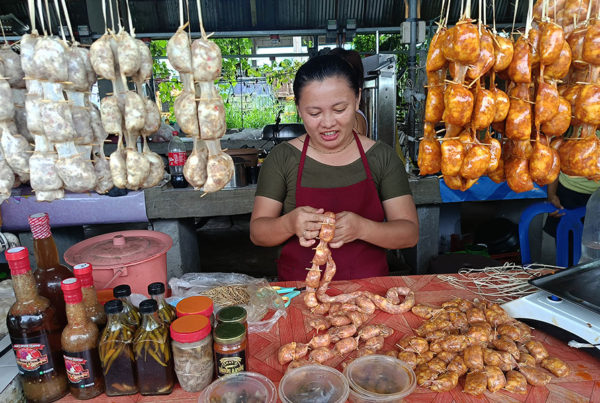Rice Black Bug infests rice land in eastern towns
ALAMINOS CITY—Up to 753 hectares of rice farms in seven rice producing towns of eastern Pangasinan have already been infested by Rice Black Bug (RBB), Office of the Provincial Agriculturist (OPAg) officer-in-charge Dalisay Moya said on Wednesday.
Moya clarified, however, that those infested comprised only a little portion of the 150,000 hectares cultivated for rice during the first planting season and the infestation is already under control.
RBB rampaged in the ricefields of Manaoag, Urdaneta, Villasis, Asingan, Tayug, San Manuel and Rosales.
She assured farmers in eastern Pangasinan pest surveillance officers and technicians have already been deployed to the affected towns to combat the infestation.
Moya said that they are fighting the menace using a biological control agent called metharisium which was found to be the most effective way to kill RBB that come out in droves during full moon and are attracted to light.
OPAg also plans to set up night traps in several strategic places in a bid to reduce population of the pest and prevent their migration.
The pests stay in the roots of rice plants but when it is full moon, they emerge from their hiding and destroy the leaves, stalks and grains of the palay.
She also advised farmers to plow their farms soon after harvesting their palay to destroy the eggs of the insect.
Meanwhile, Samahan ng Industriyang Agrikulura (SINAG) estimates that as a consequence of the infestation, harvest from October to December is expected to be reduced by 80%.
SINAG President Rosendo So said, a 1.5 hectares of rice land that normally produce 150 cavans only produce 15 cavans because of the infestation of black bugs.
He said, the infestation of black bugs can be stopped if the farmers will temporarily stop the cycle of rice planting. Instead of rice, the farmers can plant corn the following planting season on February and March.
So added said, it could help if the affected farmers are given a ‘pamalit binhi’ of high breed seed by Department of Agriculture.
With the price of palay at leveled at P21 a kilo today, the farmers cannot hope to breakeven, So said. (Leonardo Micua/Nora Dominguez)
Share your Comments or Reactions
Powered by Facebook Comments







